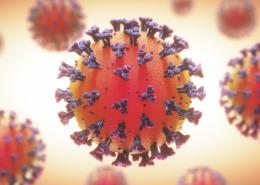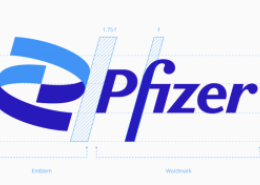Pfizer Supplies One Billionth Pneumococcal Conjugated Vaccine Dose for Vaccination of Children in Lower- Income Countries Through Gavi, the Vaccine Alliance
- The 1 billionth pneumococcal vaccine dose was delivered to Ethiopia
- Since 2010, Pfizer pneumococcal vaccines have reached 57 Gavi-eligible countries to help protect an estimated 300 million plus children
- The collaboration is a part of Pfizer’s commitment to help close the global health equity gap and bring our medicines and vaccines to vulnerable communities on a not-for-profit basis
New York, October 22, 2024 – Pfizer today announced it has supplied its 1 billionth pneumococcal conjugate vaccine (PCV) through its collaboration with Gavi, the Vaccine Alliance. The billionth dose was delivered to Ethiopia for use in its national immunization program to help protect children from pneumococcal disease.
Globally, pneumonia is the single largest infectious cause of mortality in children under five.1 Gavi, the Vaccine Alliance is a public-private partnership that brings together governments, global health organizations, the vaccine industry and other sectors to increase equitable and sustainable access to vaccines for some of the world’s deadliest diseases, like pneumonia.
In 2009, Gavi established the Pneumococcal Advance Market Commitment (AMC), a public-private health financing mechanism designed to create a sustainable marketplace, enabling investment in development and manufacturing and providing an affordable and stable supply of vaccines at a highly subsidized price for supply to children in low- and lower-middle income Gavi-eligible countries. Pfizer was one of the first manufacturers to participate in the AMC. To date, its vaccines have reached 57 Gavi-eligible countries, and they are estimated to have helped protect more than 300 million children from pneumococcal disease.2
Gavi’s success in immunizing over a billion children since 2000 is built upon its unique multistakeholder model. Vaccine manufacturers play a critical role in this partnership, helping us build healthy, affordable markets for vaccines and delivering innovative new solutions. We are proud of reaching this important milestone together with Pfizer and look forward to impactful collaboration in the future.” – Dr Sania Nishtar, CEO, Gavi, the Vaccine Alliance.
In Ethiopia, more than 40,000 children under five die from pneumonia annually.3 It is a leading cause of death during the postnatal period, accounting for 20% of deaths in this age group every year.4 Since 2020, Pfizer has supplied more than 40 million pneumococcal vaccines to support the country’s vaccination efforts.
“Pediatric pneumococcal vaccines are critical in our fight against one of our nation’s most urgent public health challenges. With the support of Gavi, we have been able to provide access to these vaccines to help protect our most vulnerable citizens. The billionth dose is an exciting milestone and a testament to the commitment and cooperation of Pfizer, Gavi and other partners to help children in Ethiopia and around the world have a healthier start in life.” said Mr. Melkamu Ayalew, Head of Immunization, Federal Ministry of Health, Ethiopia.
Today, more than 50 percent of Pfizer pneumococcal vaccines manufactured are supplied to support access in low- and lower-middle-income countries on a not-for-profit basis through its collaboration with Gavi.
“We are thrilled to have reached such an incredible milestone through our continued collaboration with Gavi to ensure children around the world have the opportunity to live longer and healthier lives, but our work does not end here,” said Pfizer Emerging Markets President Nick Lagunowich. “Through collaborations like this one and our ‘Accord for a Healthier World’ initiative, which is working to expand access to all of the medicines and vaccines for which we have global rights, in 45 lower-income countries, we will continue to collaborate with global health organizations, governments and others to enable sustained, not-for-profit access to breakthrough medicines and vaccines and to help to close the health equity gap for the most vulnerable.”
Since the Pneumococcal AMC was first established, significant progress in the fight to protect children against pneumococcal disease has been made. Global PCV coverage has increased six-fold from 10 percent in 2010 to 65 percent in 2023.5 However, this falls short of the Immunization Agenda 2030 target of 90 percent,6 signaling that there is more work to be done. Ensuring more children are vaccinated against vaccine-preventable diseases, like pneumococcal disease, goes beyond providing individuals with protection against severe disease and death. It can help uplift communities and countries by promoting health equity,7 increasing economic productivity8 and reducing the cost burden on healthcare systems.9
Pfizer’s collaboration with Gavi, the Vaccine Alliance is part of the company’s broader commitment to help address health equity gaps around the world and enable accelerated access to medicines and vaccines. Pfizer’s Accord for a Healthier World initiative is a first-of-its-kind effort to increase access for 1.2 billion people living in 45 lower-income countries around the world. Through the Accord, Pfizer has committed to provide access to the full portfolio of medicines and vaccines for which it has global rights on a not-for-profit basis to eligible countries while also collaborating with governments and others to address the system-level barriers that can prevent access to these products to the people that need them.
About Pfizer Inc.: Breakthroughs that Change Patients’ Lives
At Pfizer, we apply science and our global resources to bring therapies to people that extend and significantly improve their lives. We strive to set the standard for quality, safety and value in the discovery, development and manufacture of health care products, including innovative medicines and vaccines. Every day, Pfizer colleagues work across developed and emerging markets to advance wellness, prevention, treatments and cures that challenge the most feared diseases of our time. Consistent with our responsibility as one of the world's premier innovative biopharmaceutical companies, we collaborate with health care providers, governments and local communities to support and expand access to reliable, affordable health care around the world. For 175 years, we have worked to make a difference for all who rely on us. We routinely post information that may be important to investors on our website at www.Pfizer.com . In addition, to learn more, please visit us on www.Pfizer.com and follow us on X at @Pfizer and @Pfizer News, LinkedIn, YouTube and like us on Facebook at Facebook.com/Pfizer.
- WHO. 2022. Pneumonia in children. Available at: https://www.who.int/news-room/fact-sheets/detail/pneumonia#:~:text=Pneumonia%20is%20the%20single%20largest,aged%201%20to%205%20years. Accessed September 2024.
- Pfizer Inc. 2024. Data on file - Patient counts are estimates derived from Pfizer internal data sources” Pneumonia Prevalence and Associated Risk.
- Alamneh YM, Adane F. Magnitude and Predictors of Pneumonia among Under-Five Children in Ethiopia: A Systematic Review and Meta-Analysis. J Environ Public Health. 2020 May 30;2020:1606783. doi: 10.1155/2020/1606783. PMID: 32565837; PMCID: PMC7277048. Available at: https://www.ncbi.nlm.nih.gov/pmc/articles/PMC7277048/#:~:text=5.-,Conclusion,to%20prevent%20those%20risk%20factors. Accessed September 2024.
- Leka Lutpiatina, Lilis Sulistyorini, Ririh Yudhastuti, Hari Basuki Notobroto, Prediction of Toddlers Acute Respiratory Infection (ARI) to Become Pneumonia in Martapura Catchment Area, Banjar District, Indonesia, Global Pediatric Health, 10.1177/2333794X241227694, 11, (2024). Available at: https://onlinelibrary.wiley.com/doi/10.1155/2022/6497895#:~:text=In%20Ethiopia%2C%2044%2C000%20under%2Dfive,the%20postnatal%20period%20%5B5%5D. Accessed September 2024.
- WHO. 2024. Pneumococcal Vaccination Coverage. Available at: https://immunizationdata.who.int/global/wiise-detail-page/pneumococcal-vaccination-coverage?CODE=Global&ANTIGEN=PCV3&YEAR= Accessed September 2024.
- WHO. 2021. Implementing the Immunization Agenda 2030. Available at: https://www.who.int/teams/immunization-vaccines-and-biologicals/strategies/ia2030 Accessed September 2024.
- Luyten J and Beutels P. 2016. The Social Value Of Vaccination Programs: Beyond Cost-Effectiveness. Health Affairs. 35(2). Available at: https://www.healthaffairs.org/doi/10.1377/hlthaff.2015.1088 Accessed September 2024.
- Masia NA, Smerling J, Kapfidaze T et al. 2018. Vaccination and GDP Growth Rates: Exploring the Links in a Conditional Convergence Framework. World Development. 103;88-99. Available at: https://www.sciencedirect.com/science/article/abs/pii/S0305750X17303273 Accessed September 2024.
- Chen C, Liceras FC, Flasche S et al. 2019. Effect and cost-effectiveness of pneumococcal conjugate vaccination: a global modelling analysis. The Lancet. 7(1);58-67. Available at: https://www.thelancet.com/journals/langlo/article/PIIS2214-109X(18)30422-4/fulltext Accessed September 2024.








